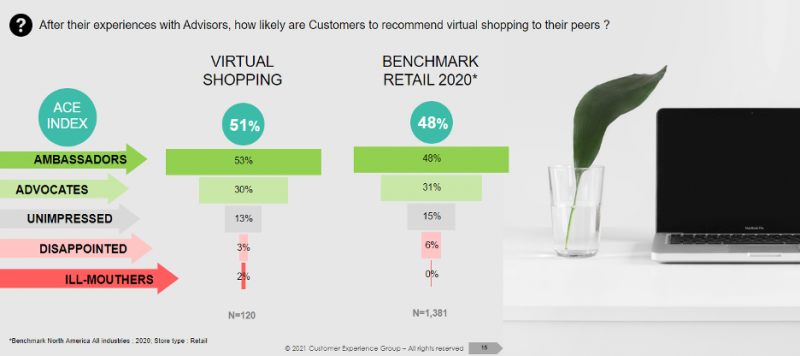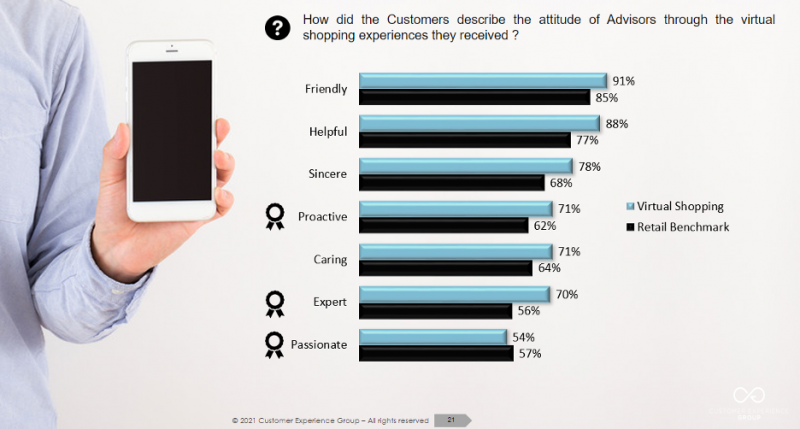Virtual Shopping: Luxury Customers Beyond Brick-and-Mortar
In 2020, we have all been wondering how to keep in touch with our loved ones we could no longer invite into our homes. Take that analogy to the world of luxury brands, loved ones become the clients, houses become retail boutiques and the willingness to maintain contact a pressing business imperative.
Virtual Shopping is part of the answer, and while this service was already offered to VIPs, it is challenging to scale the practice. We wanted to understand the impact of Virtual Shopping on Customer Experience. Between December 2020 and February 2021, we collected 120 customer surveys following virtual shopping interactions with luxury and premium brands* and this is what we learned:
Debunking the physical retail CX supremacy myth
Our study shows that the quality of experiences delivered through Virtual Shopping is on par with our luxury retail benchmark**. Physical boutiques have long been considered the epitome of customer experience, yet with very little practice brands have managed to meet the same level of CX through distant sales. This is a promising outlook for brands who will dedicate means to explore this outlet and tap into its potential to diversify their customer experiences.

Emotional connection at a distance
In Virtual Shopping interactions, Advisors are perceived to display significantly better attitudes than in physical retail. It is grounds for celebration as we know from past studies how interconnected advisors’ attitudes are with the quality of the experience delivered.

Some factors can explain this performance:
1. The by appointment set up enhances the sense of responsibility of the advisor.
2. Some brands select their top Advisors to deliver the Virtual shopping experiences.
3. Advisors are perceived to be focusing on meeting customer needs rather than generating transactions, opening an interesting conversation around optimal KPIs for Advisors.
4. Legacy in-store selling ceremonies cannot be entirely duplicated virtually; Scripted interactions that tend to be rampant in boutiques and yield poor CX results are limited in Virtual Shopping and Advisors are free to engage more naturally.
On the road to full harmonized retail
- Clienteling efforts remain to be enhanced: data collection is under-optimized and follow-ups did not happen in 50% of interactions. Suboptimal CRM systems might be a roadblock, preventing teams from engaging in structured and qualitative clienteling efforts. As importantly, a generalized lack of client-centricity remains an industry challenge we witness across the board.
- Technology at the service of the experience is a requirement to turn Virtual Shopping into a scalable and powerful practice. The power of appointment booking to reduce churn (20% of experiences did not receive an appointment confirmation) and add value to interactions is not to be underestimated. Brands can leverage appointment booking to better anticipate & prepare a personalized experience.
Virtual Shopping represents one step in a fully harmonized approach to retail. Tapping into its full potential requires to address technical challenges and reinforce client-centricity.
 |
|


